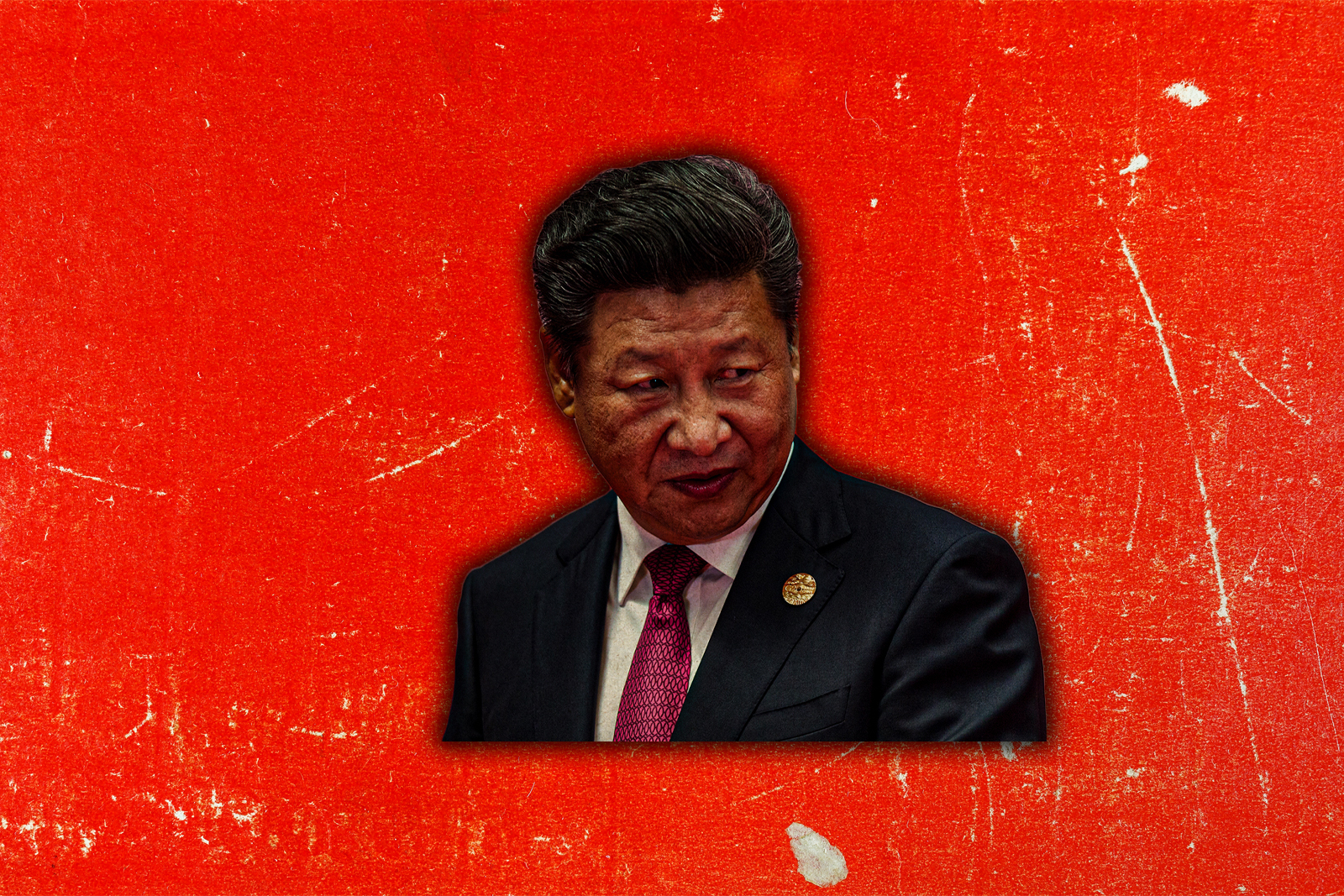
We Can Ask a lot of Kazakhstan, but We Must be Realistic
At the crossroads of a turbulent Central Asia, lies Kazakhstan, the world’s ninth-largest country. To its west, Russia’s unprovoked invasion of Ukraine rages on. To its south, the Taliban-run Afghanistan is losing ground to the re-emerging cells of the Islamic State. And to its east, China continues to flex its economic and diplomatic muscle to the ire of Western powers.
For Kazakhstan of course, it is more than just the geography of the situation which poses the challenge, it is the political and economic landscape upon which the nation is emerging from the shadows of the Soviet era, and steadily building a new republic with bolstered democratic institutions, and an increasingly western facing, and diverse economy.
The last months, however, have seen extra pressure added on Kazakhstan. The January riots and protests shook the country and its institutions to their very core, and as the dust settled, the government and the people made a conscious choice not to allow a repeat of such scenes. Since last March, the country has embarked, under the leadership of President Kassym-Jomart Tokayev, on a fast highway of political and economic reforms, aimed at modernizing, decentralizing, and forming a new Kazakhstan.
Western interests in Central Asia
Externally, the crippling economic sanctions on Russia have a direct impact on Kazakhstan’s ability to grow its economy and promote stability. The knock-on effects on countries which trade with Russia were always going to be significant. But for Kazakhstan, whose economy is also heavily rooted in natural resources and energy, the political game of thrones around the supply of gas and oil across Europe, has left the country treading a perilous path.
Thus far, Tokayev has done a reasonably good job of balancing these complex realities. The United States has sent senior officials to Nur-Sultan to reaffirm its support for widespread reforms that the government has initiated to promote human rights, constitutional checks and balances, competitiveness, and equal opportunities for all Kazakhs. Key legislation and reforms, aimed at vastly enhancing the welfare and civil rights of the working and middle classes, were initiated.
Business leaders from Central Asia, Europe, and further afield have made regular appearances in Kazakhstan in a continuous show of support for the security of international investments in the country. Additionally, officials from the UN and the EU have also made appearances, attending panels and discussions in Kazakhstan focusing on the threat from the Islamic State, and partnering on projects with Kazakhstan to assist Afghan girls to attend school. Additionally, Pope Francis and other religious leaders will converge on Nur-Sultan for a religious conference.
Yet, alongside so much of this international recognition and succor has come an increasing desire to see Kazakhstan distance itself from China. Perhaps sensing this unease in the West, Chinese President Xi Jinping chose Kazakhstan as his first destination out of China to visit after the 2019 COVID outbreak. Bloomberg reports: “President Xi Jinping on Wednesday traveled to Kazakhstan for a state visit, in his first foreign trip in nearly 1,000 days as he shores up alliances to counter U.S. influence on the world order. The Chinese leader, who wore a mask bearing a Chinese flag, was greeted on the tarmac by a marching band and President Kassym-Jomart Tokayev, after landing in the capital city Nur-Sultan.”
President Kassym-Jomart Tokayev met Chinese President Xi Jinping at the airport, who arrived in Kazakhstan on a state visit. pic.twitter.com/XIOmtDt6XS
— President Kassym-Jomart Tokayev’s Press Office (@AkordaPress) September 14, 2022
While the West would like to see Kazakhstan break from China, it’s an unrealistic goal. If the U.S. and the EU were to succeed in driving an irreparable wedge between Nur-Sultan and Beijing, it may prove to be a Pyrrhic victory for its ability to influence Central Asia and secure Western interests in this extremely important part of the world. Those interests include the supply of uranium, titanium, oil, and gas, and the ability to operate against insurgent groups in Afghanistan.
Kazakhstan’s importance to China
Initially, of course, it is worth considering why Kazakhstan is so important to China. For a start, the countries share a vast border, 1,107.75 miles long, making Kazakhstan one of the most important gateways to the West. It is indeed a peaceful border – congenially marked out and respected since Kazakhstan’s independence in 1992.
At the same time, the alphabet agency of cooperation organizations between the two nations makes up a lengthy list: chief among them is the Shanghai Cooperation Organization for security cooperation, and Kazakhstan is a key partner in the regional economic vision of Xi Jinping’s Belt and Road Initiative. Indeed, the retaking of power by the Taliban in Afghanistan following the U.S. withdrawal in 2021, and the subsequent appearance of Islamic State cells has proven, if not added, to the value of the Shanghai Cooperation Organization.
Therefore, it was not a surprise, that Beijing was among the first foreign visits for Kazakhstan’s Tokayev after he took office in March 2019. Six years before, in 2013, Xi Jinping unveiled his Belt and Road Initiative during a state visit to Nur-Sultan, calling it the “buckle of the belt road,” a crucial component in holding the whole thing together.
China’s importance to Kazakhstan
Behind Russia, China is among the top five largest foreign investors in Kazakhstan with joint enterprises amounting to around 5% of economic investment in the country. In turn, Kazakhstan is now China’s 40th largest trading partner.
It is true, that concern about China’s influence in the economy has stirred controversy in Kazakhstan, and the government is committed to heeding these concerns too. However, here is one example of the importance of trade between the two countries. There are two main trade crossings between Kazakhstan and China – Khorgos and Dostyk-Alashankou – with the former poised to become the world’s largest dry port handling 30 million tons of freight a year. With world supply chains suffering historic bottlenecks, such a trading route will have global ramifications.
Equally, China is important to efforts by Kazakhstan to diversify its energy sales and economy. This is not only important from a geopolitical perspective when one considers the Western sanctions on Russia, but also as part of global efforts to combat climate change.
Russia will fill the vacuum
Ultimately, here lies the key for Western powers seeking to distance Central Asian nations from China’s sphere of influence. Because, in the place of China, the natural vacuum will most likely be filled by Russia. Russia is still the country’s largest trading partner, and the main transportation channel for exporting Kazakh crude oil to Europe. Pushing Kazakhstan away from China, into a Russian bear hug would pose a significant problem for the West, particularly while the world still grapples with the war in Ukraine.
For Kazakhstan, the desire and challenge will always be to find a peaceful balanced geopolitical path. As we can see, this is of importance not for the Central Asia region, but for global economies and indeed for our shared environment which does not care about borders or human conflicts but requires our attention and care. In the current realities of the day, the West can ask a lot of Kazakhstan, and it will gladly step up to the plate. But in the face of sanctions on Russia and anti-Chinese policies, it is important to look at the realities on the ground. Stability will be born out of cooperation, and Kazakhstan’s strength and independence are vital components of that steadiness.

